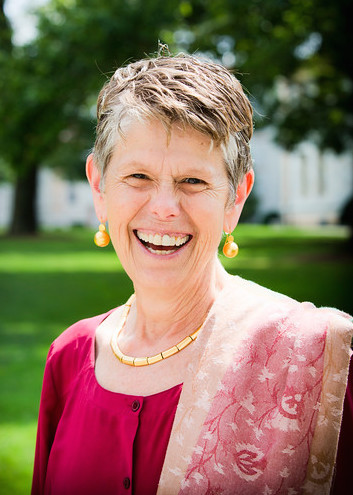
The LITS Wellness Committee was delighted to welcome Professor Bobbi Patterson, professor of Pedagogy in the Department of Religion and the Graduate Division of Religion at Emory, back to the library on Friday, October 13, where she led a meditation session for LITS employees focused on mindfulness and stress management.
If you’re interested in taking more time to practice mindfulness and unwind from stress at work and home, join Prof. Patterson every Wednesday from 5:00-6:00PM at Canon Chapel for guided mediatation sessions open to all members of the Emory community. Find more information on these sessions, which help participants calm the mind and cultivate compassion, here. For daily exercises in stress management and self-care, register for Healthy Emory’s Refresh from Stress program, beginning on November 1. Registration closes on October 27. Register here to participate. And don’t forget: All are welcome to attend the LITS Mindfulness Group, a secular mindfulness meditation practice group inspired by the work of Jon Kabat-Zinn. The group meets on Tuesdays at 12:30pm and on Thursdays at 4:30pm and you can find more information on our Calendar page.
Read on for more on Prof. Patterson’s many accomplishments and her approaches to living well and with intention:
Professor Patterson’s current scholarship focuses on questions of place and space in relation to cultural, social, and life systems. Her interests in lived religion in communities also draws on theories and practices of Christian and Buddhist contemplative studies. Coordinating the Religion and Ecology Collaborative of Emory’s Graduate Division of Religion, she shares scholarly interest in how and when nature, ethics, and urban communities interact and generate resilience. With a longstanding commitment to the scholarship of teaching and learning, she remains engaged in various pedagogical projects focused on community and civic engagement, place-based pedagogies, and the discovery of richer paradigms for assessment.
She is also co-leading a Compassion Meditation group for suicide attempters through the Grady Hospital Psychiatry and NIA project programs. Through the Office of Sustainability Initiatives, she developed the Emory as Place Initiative, designed to explore and educate about campus histories, places, and ecologies. Using media-based, experiential, and narrative-based formats, this initiative has created tours of campus woodlands, an Emory civil rights related tour, and a campus-wide scavenger hunt among other residential hall activities.
As Chair of the Sustainability Task Force of the American Academy of Religion, she draws her interests in material culture, religion, and spirituality into areas of sustainable living and transformation. The Task Force has thoroughly greened the Academy’s meetings and become a model for other international organizations who have consulted with us including the American Philosophical Association and the American Anthropological Association. The Task Force has developed a number of workshops and is working more closely with Regional Sections.
When asked how she started her practice of meditation, Professor Patterson said she was rasied in the Christian prayer tradition and then studied with the Society of Saint John the Baptist (SSJE), a monastic community of the Episcopal Church, while she was in graduate school at Harvard University, where she earned a Masters in Divinity. She also received some cross-training in Tibetan Buddhism at Naropa University in Boulder, Colorado, as well as at Deprung Loseling Monastery Center for Tibetan Buddhist Studies in Atlanta. She has been studying and practicing meditation for over 40 years, practicing daily.
Professor Patterson lives with her husband in Decatur, Georgia, and enjoys kayaking and hiking. Other activities Professor Patterson does to stay well include getting adequate sleep, swimming three days per week with the Masters team, and running three days per week. She also incorporates weights and yoga into her exercise routine and eats healthfully with the occasional treat.
Leave a Reply